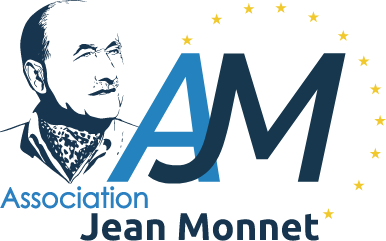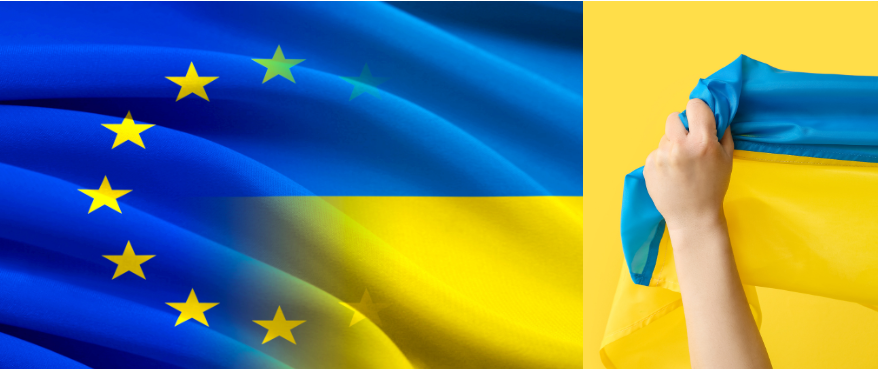On 23 June 2022, the European Union granted Ukraine, which was brutally attacked on 24 February by Putin's totalitarian Russia, candidate status. But although President Zelensky has not ceased to demand urgent membership since then, not hesitating to cite 2024 as an objective, the pre-accession antechamber where Ukraine finds itself today in the company of nearly a dozen other candidates, most of whom are already waiting for a long time, does not in any way prejudge such an outcome for its partners.
Many predictable and serious obstacles
Previous enlargements of the European Union have always been conditional on rigorous adaptation, often requiring a good ten years. The only exception was the accession of the former East Germany in the exceptional context of German reunification. Another obstacle to accelerated accession is the recently introduced condition of a prior institutional reform of the Union before any further enlargement, a reform that is as complicated as it is uncertain at present. The failure in 2005 of the draft Constitutional Treaty, which was poorly mended by the Lisbon Treaty of 2007, and which is itself unable to adapt to a new, large-scale enlargement, is testimony to this.
These are the prerequisites that many member countries do not hesitate to underline, beyond all the signs of sympathy, the increasing logistical and military support, the multiplication of high-level visits and mutual meetings and the standing ovations of Western parliamentary assemblies following the unprecedented calls of the Ukrainian president.
The obstacles to an accelerated accession of Ukraine should not be underestimated, especially since the characteristics of this country will require, in view of the usual European criteria, a particularly demanding adaptation. The level of its current GDP, which is far below the Community average and even below that of most of the other candidates, will require European aid that is all the more significant because its population of 44 million will make it a large Member State.
A great many reforms will have to be undertaken to adapt Ukrainian structures to European standards, particularly with regard to the legal transparency of its institutions and especially the fight against corruption, which President Zelensky has already initiated to some extent.
This being the case, the upgrading of the structures of the Ukrainian economy also promises, in view of its strong mining potential, especially in rare earths, its industrial and energy potential and, of course, its agricultural potential, with its unparalleled cereal acreage, to make it an important member state, which will reinforce the self-sufficiency and global competitiveness of the European Union. But this prospect may also worry many, starting with France, which is in no hurry to see the European pre-eminence of its agriculture challenged in an unprecedented way on the markets, while being further penalised by a redistribution of the Common Agricultural Policy's aids.
Moreover, the political, economic and strategic balance of the European Union will itself be significantly reinforced towards the East. Here too, this shift may, rightly or wrongly, be of concern to a France that has already felt decentralised by an evolution that began thirty years ago with German unification and continued with the great continental enlargement.
These are the main obstacles currently facing the prospect of Ukraine's accelerated accession to the European Union. In view of the particular problems sensed from the French perspective, President Macron did not hesitate to make himself one of the main interpreters, at the risk, for those who do not understand the subtlety of the "at the same time", of wondering about the blurred limits in the intensity of the support shown for Ukrainian accession.
Exceptional political stakes to sweep away all these obstacles
In the face of these prejudices, more or less clearly expressed, there is no lack of reasons to counterbalance them and to support President Zelensky's eagerness to join us urgently. It is an image that is as strong as it is emblematic, as eloquent as it is convincing: that of a charismatic president in combat fatigues, determined to defend our European freedoms without any spirit of retreat or submission by defending those of his country against the aggression of an implacable dictatorship, the explicitly declared mortal enemy of our Western democratic values.
There is no precedent in the history of the European Union for such a situation, nor is there any other candidacy with this one. For our Union of 2023, one fact is certain: since Putin's Russia deliberately engaged in an armed conflict in Europe for the first time since 1945 and in defiance of all legal, diplomatic and civilisational rules, our entire frame of reference has been shifted overnight into another world.
This "day after" is forcing the European Union, supported by NATO, to fundamentally reprogram its DNA, which until now has been essentially centred on the commercial organisation of a globalisation that we hoped would be happy. Today, confronted with the realities of a war economy, which no one dares to call by its name but which is becoming more and more obvious as such, it is now forced to do the exact opposite of what it did yesterday.
Multiplying the economic and financial sanctions against Russia, forced to sacrifice overnight the titanic energy supply infrastructures from the latter, which seemed to have been put in place for an eternity, forced to review from top to bottom its entire economic and commercial strategy, affected by the ambiguous attitude of its Third World partners towards the situation, to say the least Shaken by the indecipherable positioning of its main trading partner, China, which is adept at blurring the lines by playing all the cards and all the scores, but which is primarily invested in a strategy of global supremacy, the European Union can no longer afford to pay the price for its short-sightedness, if not its inconsistency, and to suffer all the shocks in return.
The list seems endless: total military dependence on the United States, with its direct political and economic consequences, the obligation to double or even triple national military budgets that had lain dormant for thirty years, the revival of dismantled arms sectors and industries, the reinvention of forgotten training and know-how, the weakening of Franco-German relations in a Europe that is as subject to domination from across the Atlantic as it is profoundly shaken by the eruption of war in the East, A lasting air pocket in the attempts at post-Covid economic recovery, the emergency reception of several million Ukrainian refugees deprived of everything, the aggravation and multiplication of energy issues and deprivations, the questioning of climate plans, the spectacular return of inflation, and growing political and social tensions. The miracle is that, in such conditions, the unity and solidarity of the European Union has nevertheless managed, against all odds, to be safeguarded...
The only credible response to a lawless dictatorship
On the military front, the escalation on Europe's borders is there and there is no sign of any appeasement. Supported by a preponderant American aid and framed by a return in force of NATO's affirmation, the European Union is forced to urgently deliver to Ukraine all that it can still provide, even if it means stripping its own national means of defence even more.
In a few months, logistical reinforcements, medical aid and deliveries of light weapons were replaced by support armour, field artillery and missile batteries, followed by battle tanks and fighter planes. Permanent air patrols, with the active participation of the French air force, sweep the thousands of kilometres of the Union's eastern borders, deterring any incursion by the Russian aggressor.
Yesterday, the covid made us play at war. Today, Putin's totalitarian, aggressive and imperialist Russia is imposing its own war on Europe, the real and worst one, with its terror bombings, mass rapes, tortures and war crimes, its deportations of entire populations and its abduction of children stolen from their families and their country. For Russia's neighbouring EU member states, formerly annexed or satelliteized by Russia, it is a cruel reminder of what they once had to endure from the Red Army, and the terror of seeing it repeated. And for our whole Europe, it is the hour of truth. The first fighters of a democratised Europe had the motto: live free or die. Today's Ukrainians are their worthy heirs. Their exemplary motivation, their fierce resistance, their military intelligence, their inventive ingenuity, in militarised drones and new low-cost but highly efficient technologies, supported by the satellites of a relentless American surveillance of the slightest movements of the aggressor, have made it possible to date to corner the Russian army in a deadly trap.
Yet Putin's Russia has not learned a single lesson. It sacrifices its own troops, supported by proxy militias of former common law prisoners, hoping to benefit from a war of attrition. And, for good measure, it relocates its nuclear missiles, reinforcing those of its advanced enclave of Kaliningrad by the unprecedented installation of new ones on the territory of its Belarussian vassal, taking pleasure in waving its Russian roulette wheel with the supreme blackmail, that of a bombardment of atomic power stations, of a use of so-called tactical nuclear missiles, without even excluding the ultimate apocalyptic threat of intercontinental missiles.
Faced with the Stalinist criminality of Putin's regime, which has already been indicted by the International Criminal Court, and in the face of which there is no other possible attitude than one of fearless, unflinching and unwavering determination, the urgent admission of Ukraine into the European Union, in recognition of and as the price for the bloodshed it has caused, as a direct illustration of our physical and moral rearmament, would certainly be the clearest and therefore the best political response. And, in fact, the only one that is equal to the Ukrainian sacrifices, the Putin provocations and the vital stakes of this war for Europe.
Accelerated accession possible in three stages
Such acceleration could therefore be carried out in three stages. The first step would be to involve Ukraine as a permanent guest in the Union's governing bodies (European Council, European Parliament, European Commission) without further delay, albeit without the right to vote but with free expression and participation. The Economic and Social Committee and the Committee of the Regions would also benefit from inviting Ukrainian interlocutors to their meetings.
A second step could be to conclude the Accession Treaty as early as 2024, which the Member States and the European Parliament would have to ratify with a view to entry into force in 2025. The clause on prior reform of the Union should not apply to this accession because of its unique character, manageable within the framework of the current institutions and politically justified by the exceptional circumstances. For the same reasons, the other candidate countries should not be able to use this priority accession to force the preparation and implementation of their own, which would not mean that they would necessarily be penalised and delayed.
Finally, this accelerated accession of Ukraine, with its full participation and voting rights, should in no way mean that it could avoid the transition periods required for the full exercise of economic freedoms and full compliance with common legal standards. This upgrading and compliance would thus be deferred to a third stage, under the control of the Commission and the European Court of Justice. The essential difference with previous accessions would therefore be that, as a result of the urgency requirement, the transition periods related to Community freedoms and obligations would take place mainly after and not before Ukraine's political accession.
As for the foreseeable prejudices against such a departure from the traditional model of slow percolation accessions to the benefit of such a Ukrainian accession "in front traction", certainly revolutionary but justified by a situation out of the ordinary, we will leave it to history to answer, as so often when faced with exceptional issues: necessity is the law!






